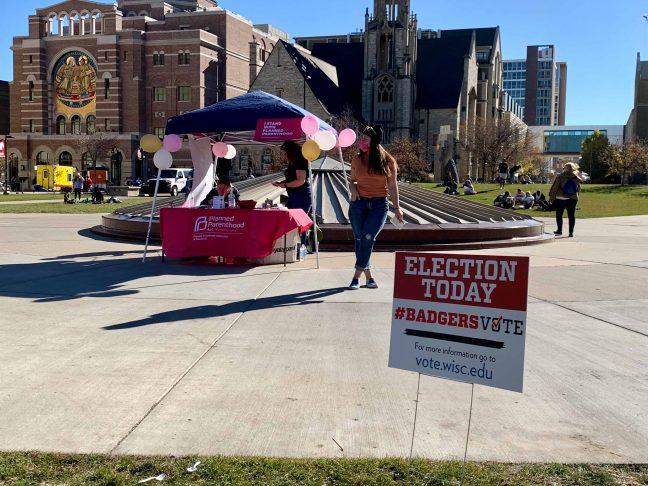Nov. 8, Dane County voters will provide their views on cannabis and abortion through three non-binding referendum questions that will appear at the end of the ballot.
The first question will be about legalizing marijuana. The last time this question was asked in 2018, 76.4 percent of Madison residents voted in favor of legalization. The second focuses on previous convictions of small marijuana possession and whether these be removed from criminal records.
Finally, the third non-binding referendum question asks if abortion should be legal. The importance of this referendum comes in the wake of the Supreme Court decision to overturn Roe v. Wade in June.
While these questions are important, the majority of voters will predictably vote “yes” to the three questions given that Dane County is one of the most progressive counties in the state. Further, Dane County does not have a say on whether marijuana and abortion can be legalized. These decisions are left to the federal and Wisconsin state governments.
Mobile markets provide innovative step toward greater food security
So why would the Dane County Board put these non-binding questions on the ballot if they won’t lead to immediate change? Barry Burden, a political science professor and director of the Elections Research Center at UW-Madison, may have some answers.
Burden said the questions could provide a “potential outlet for voters” looking to channel some of their frustration with current policies. Burden also says that the Dane County Board may have implemented these questions to generate interest and turnout for the election.
The last point Burden made may be the most important. According to him, while these questions may be non-binding, they could keep the topics of abortion and marijuana alive when similar ballot questions become more than advisory.
These topics have a chance at staying alive, as these ballot referendum questions aren’t exclusive to Madison. Appleton will also have a question on the legalization of marijuana, and abortion will also appear on ballots in Racine.
With advisory referendum questions on abortion and marijuana starting to appear more and more on Wisconsin ballots, there will come a time when the purpose of these questions is more than simply raising awareness. That time, however, isn’t likely to come soon while Republicans control the State House and Senate.
While these ballot questions won’t influence any legislation immediately, they’re still critical in their original purpose, which is to send the signal to the state legislation that there is support for these changes to important issues.
New Menominee-immersion charter school benefits Menominee children, community as a whole
According to a recent Marquette University Law School poll, 60% of Wisconsin voters oppose the Supreme Court decision to overturn Roe v. Wade, and 64% of Wisconsin voters favor the legalization of marijuana.
If these polls are accurate, then a statewide vote, binding or non-binding, would indicate that Wisconsin residents favor the legalization of marijuana and repealing the state’s 1849 abortion ban. This partly explains the recent Republican pushback for a statewide vote on abortion.
While the purpose of non-binding referendum questions on traditionally progressive issues may seem confusing or redundant in a place with a Democratic majority like Dane County, they could be the catalyst for an eventual statewide vote. If a trend toward more Wisconsin counties adopting these questions takes place, it could send a signal to the state legislature that some laws in Wisconsin don’t reflect the true values of its residents.
Charlie Koepp ([email protected]) is a sophomore studying psychology.














